Pakistan campaign’s toll
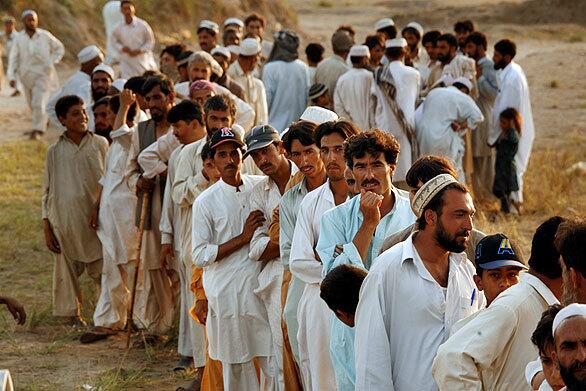
Refugees line up at a camp outside Swai as the Pakistani Red Crescent delivers cooking oil. The military says it has killed more than 1,200 militants in its campaign in the Swat Valley, and captured 79. About 8o Pakistani troops have died in the fighting. (Carolyn Cole / Los Angeles Times)
An estimated 3 million Pakistanis have had to feel the fighting in the Swat Valley, where the army is trying to flush out Pakistan militants. At the same time, there have been a spate of bombings elsewhere in the country.
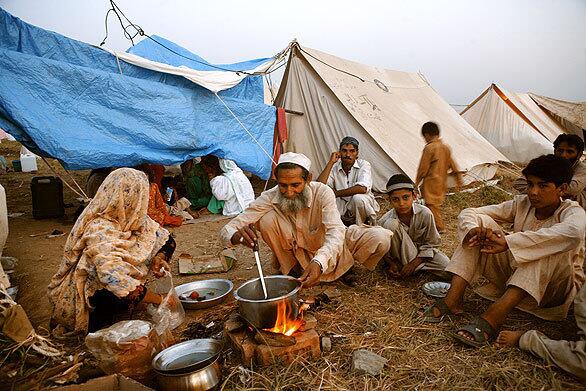
The Sherin family escaped the fighting in Mingora, the main town in Swat, two weeks ago and are now living in a camp outside of the town of Swabi. (Carolyn Cole / Los Angeles Times)
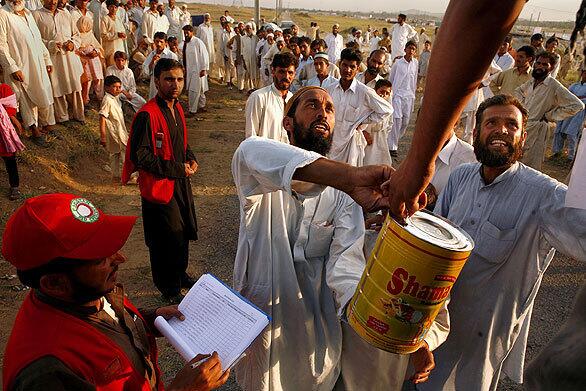
Refugees get cans of cooking oil from the Pakistani Red Crescent at a camp outside Swabi. (Carolyn Cole / Los Angeles Times)
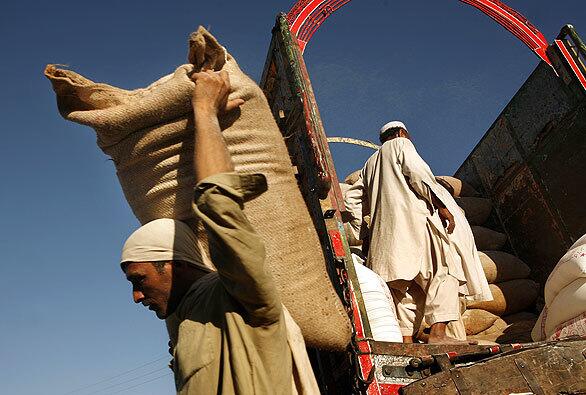
A private donation of wheat is unloaded at the Sheik Yaseen refugee camp in Mardan. Officials don’t know when it will be safe for civilians to return to the Swat Valley, where much of the infrastructure has been decimated. (Carolyn Cole / Los Angeles Times)
Advertisement
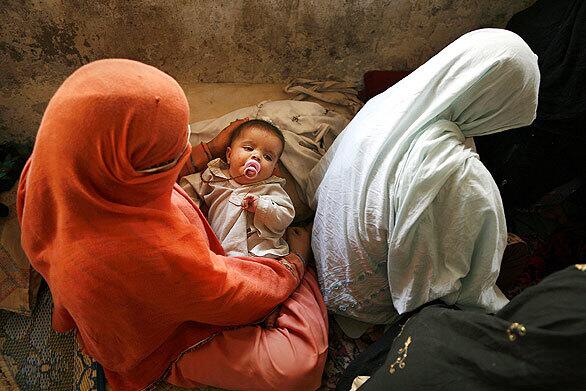
About 34 families, a total of 174 people, have taken refuge at the Gorman Primary School in Mardan and are dependent on help from private citizens. Women from the Swat area normally do not go out in public and prefer not to have their faces show. (Carolyn Cole / Los Angeles Times)
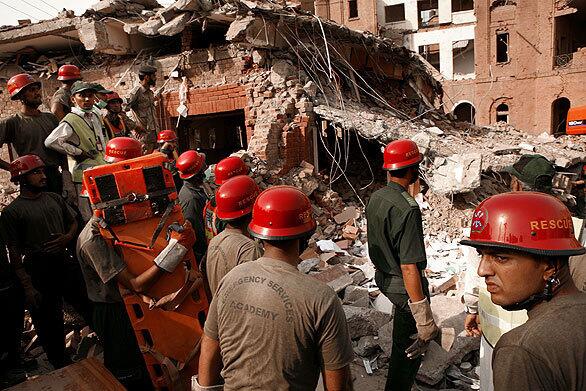
Rescue workers at the police headquarters in Lahore that was bombed Wednesday, killing 28 people and injuring more than 250. (Carolyn Cole / Los Angeles Times)
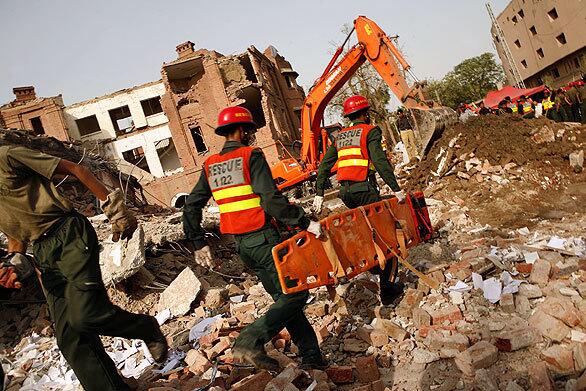
Rescue efforts continue at the Lahore police headquarters. Even as the military claims progress against militants in the northwest, there have been a series of bombings in the rest of the country. (Carolyn Cole / Los Angeles Times)
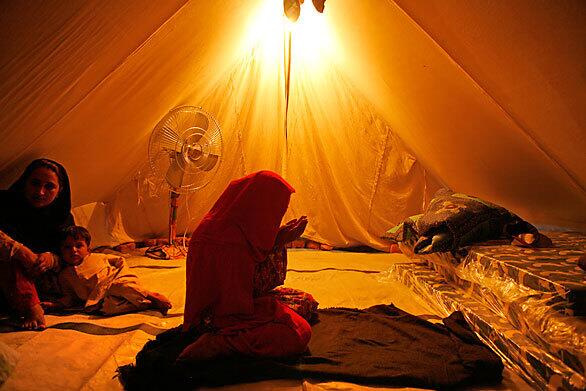
Rozina Imran, whose family fled Mingora two weeks ago due to the fighting, prays in the tent where she is now staying outside of Swabi, Pakistan. “For the past three years, the Taliban has been present in all of the streets. They destroyed the schools,” said Rozina, who was an elementary school teacher. “Now my house is destroyed. When we go back, we won’t have a home.” (Carolyn Cole / Los Angeles Times)







